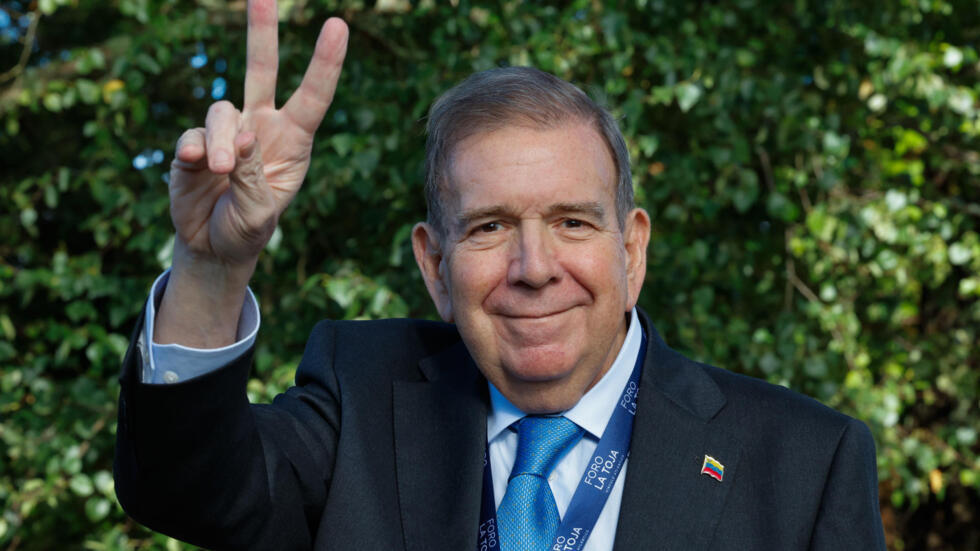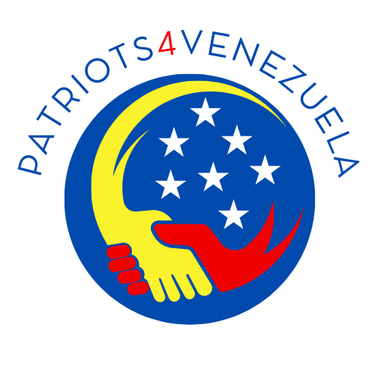A "Peaceful and Democratic" Farce for Venezuela
For 23 years, the Venezuelan political opposition has clung to the mantra of a "peaceful and democratic" political transition, as if repetition alone could conjure a miracle. But after Nicolás Maduro’s blatant refusal to respect electoral outcomes, it’s clear that The Slogan That Keeps Selling has finally lost its spell. The once-reliable refrain no longer has the magic to galvanize Venezuelans, who have grown weary of hollow promises and performative opposition. The time for new strategies, grounded in reality rather than wishful thinking, is long overdue.
Ignacio De Leon
1/22/20252 min read


Edmundo Gonzalez Urrutia’s statements yesterday, ahead of President Trump’s upcoming inauguration, might as well have been delivered with a bucket of fried chicken and fries, given how far they’ve devolved into commercial-grade sloganeering. Claiming he will witness the event "from the room next door" (invited not by Trump but by Senator Rick Scott), Urrutia once again peddled the notion of a "peaceful and democratic solution" for Venezuela. The irony is too rich: Trump seems to avoid him like a persistent debt collector, and yet he parrots the same line that has been Venezuela’s tragic anthem for the past 23 years.
Let’s face it: the phrase "peaceful and democratic solution" has long ceased to be a strategy for liberation. It now functions more like a catchy corporate tagline. Think "We Try Harder" (Hertz), "Because You’re Worth It" (L’Oréal), or "Finger Lickin’ Good" (KFC). Stirring enough to sell a product, perhaps, but utterly inadequate to dislodge the most brutal narco-mafia in modern history—a regime that could teach Afghanistan’s Taliban a thing or two about turning a nation into a drug cartel.
The Venezuelan opposition, which insists on sticking to this ineffective mantra, behaves more like the regime’s PR team than its adversary. Now that Maduro has made it abundantly clear he’ll cling to power at any cost, the opposition has no alternative strategy to oust him—except, of course, to chant the same tired slogan like a broken record. Participating in yet another election—a hollow ritual everyone knows Maduro will "win" before the first campaign poster is even printed—is apparently off the table. Meanwhile, the Cartel de los Soles (no, it’s not some glamorous bullfighting event in Alicante) continues to tighten its iron grip, turning Venezuela into a cocaine exporter extraordinaire.
Once the fourth-largest economy in Latin America, Venezuela has now "progressed" to an income level that competes with Haiti or Honduras. Its chief export is no longer oil, but waves of desperate migrants trudging through Latin America like survivors of a nuclear apocalypse. Meanwhile, the Bolivarian socialist elite aren’t suffering along with their compatriots—they’re busy snapping up international real estate, laundering their blood money, and enjoying their status as some of the world’s most unsavory investors. Socialism sure has its perks—if you're on the right side of the racket.
Narco-socialism didn’t come to power with a "peaceful and democratic" handshake. It arrived bathed in blood—the attempted coups of February 4 and November 27, 1992; the April 11, 2002 massacre; and decades of state-sponsored torture, violence, and lawlessness. For over two decades, 22 fraudulent elections have solidified its rule. Yet here stands Urrutia, echoing the same tired line, as if Venezuela were merely one more slogan away from salvation.
The truth? Urrutia and his ilk aren’t opposing the regime; they are the regime’s best accomplices. By clinging to this empty rhetoric, they’ve reduced Venezuela’s liberation to a meaningless sales pitch. Unfortunately for us, the product they’re peddling has already expired.
